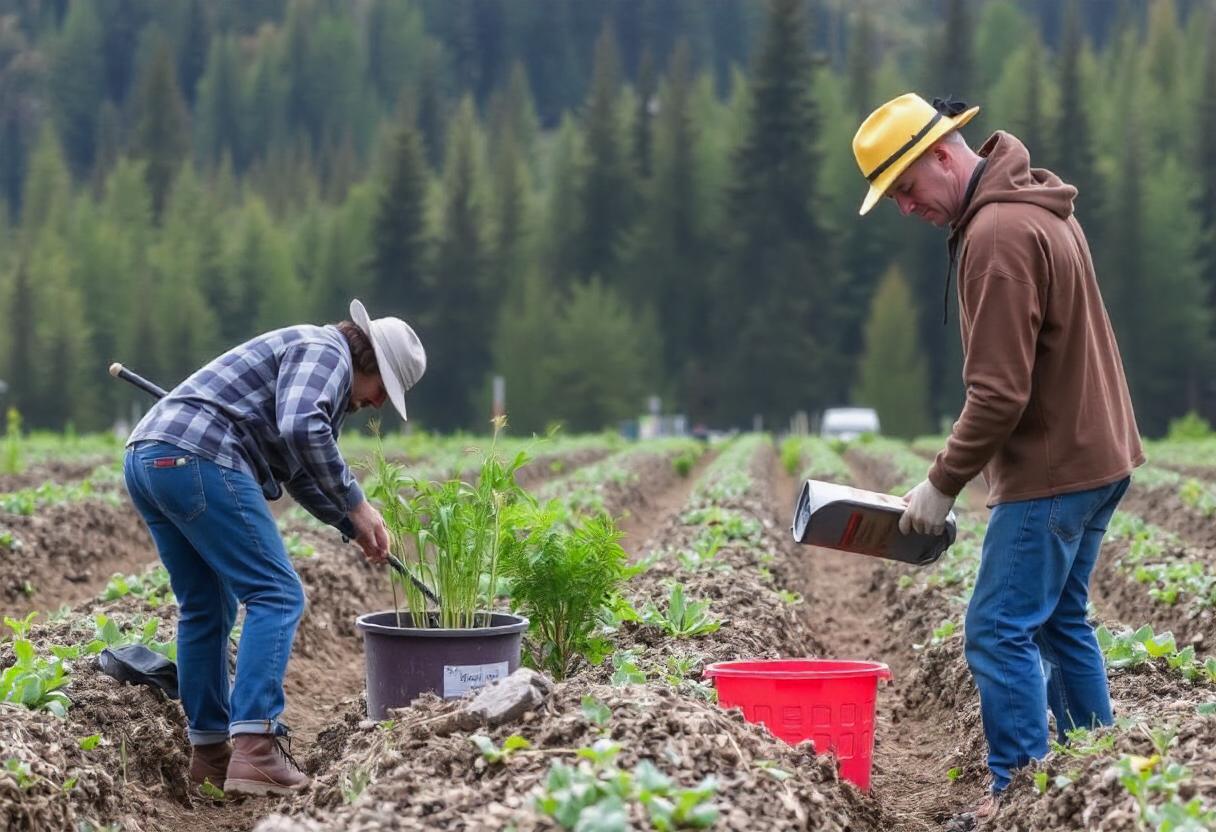
Canada is a global leader in agriculture, and the country offers various opportunities for foreign workers to contribute to this growing sector. The agricultural industry in Canada consistently requires skilled and unskilled labor to maintain its vast farmlands, livestock operations, and food production facilities. An Agriculture Work Permit is a crucial pathway for foreign workers looking to fill these roles.
Types of Agricultural Work Permits
There are two primary types of work permits available for agricultural workers in Canada: the Temporary Foreign Worker Program (TFWP) and the Seasonal Agricultural Worker Program (SAWP).
Temporary Foreign Worker Program (TFWP)
The TFWP allows Canadian employers to hire foreign workers to fill labor shortages in the agriculture sector when no Canadians or permanent residents are available. Employers must first obtain a Labour Market Impact Assessment (LMIA) to prove that hiring a foreign worker will not negatively impact the Canadian labor market. Once the LMIA is approved, the worker can apply for a work permit.
Seasonal Agricultural Worker Program (SAWP)
The SAWP is a specialized program for workers from Mexico and participating Caribbean countries. Under this program, foreign workers are hired to work in Canada for up to eight months during the peak agricultural season. The SAWP is designed to address the need for temporary labor in the fruit, vegetable, and horticulture sectors.
Eligibility Criteria for the Agriculture Work Permit
To qualify for an Agriculture Work Permit in Canada, applicants must meet several requirements. These requirements vary slightly depending on whether they are applying under the TFWP or SAWP.
General Eligibility
- Valid job offer from a Canadian employer
- A positive Labour Market Impact Assessment (LMIA), if applicable
- Meet health and security standards
- Prove intent to leave Canada once the work permit expires
- Provide evidence of financial ability to support themselves during their stay in Canada
Job Categories Covered Under the Agriculture Work Permit
Canada’s agriculture work permits cover a variety of job categories, ensuring that the country’s diverse agricultural needs are met. Common job categories include:
- Farm Laborers: These workers are involved in planting, cultivating, and harvesting crops.
- Livestock Workers: Responsibilities include feeding, herding, and managing farm animals such as cattle, pigs, and poultry.
- Greenhouse Workers: Workers assist in maintaining plants, managing the growth of vegetables, fruits, and flowers.
- Horticultural Workers: Specialized in caring for orchards, vineyards, and other fruit production facilities.
- Food Processing Laborers: Workers who assist in packaging, sorting, and processing agricultural products.
Process of Applying for an Agriculture Work Permit
The application process for an Agriculture Work Permit in Canada involves several steps, ensuring that both employers and employees meet the necessary legal requirements.
Step 1: Obtain a Job Offer
The first step for any foreign worker is to secure a valid job offer from a Canadian employer. The employer must be registered with Employment and Social Development Canada (ESDC) to hire foreign workers.
Step 2: Apply for a Labour Market Impact Assessment (LMIA)
The employer must apply for an LMIA to demonstrate that hiring a foreign worker is essential for the business and will not adversely affect the Canadian labor market. The LMIA must be approved before the worker can apply for a work permit.
Step 3: Apply for the Work Permit
Once the LMIA is approved, the foreign worker can apply for the Agriculture Work Permit. This application can be submitted online or at a Canadian visa office in the applicant’s home country.
Step 4: Medical and Security Clearance
Foreign workers may be required to undergo a medical examination and security check before entering Canada, depending on the type of work and the region they are coming from.
Step 5: Arrive in Canada
Once the work permit is approved, the worker can travel to Canada and begin working under the conditions specified in their work permit.
Rights and Benefits for Agriculture Workers
Foreign workers employed in Canada’s agriculture sector are entitled to several rights and benefits. These include:
- Fair wages in line with Canadian standards
- Safe and healthy working conditions
- Access to healthcare services in Canada
- Housing (in certain cases where the employer provides accommodation)
- Protection under Canadian labor laws, including overtime pay and time off
Agriculture workers can also apply for permanent residence under certain programs, such as the Agri-Food Immigration Pilot, which provides a pathway to permanent residency for workers in specific agricultural industries.